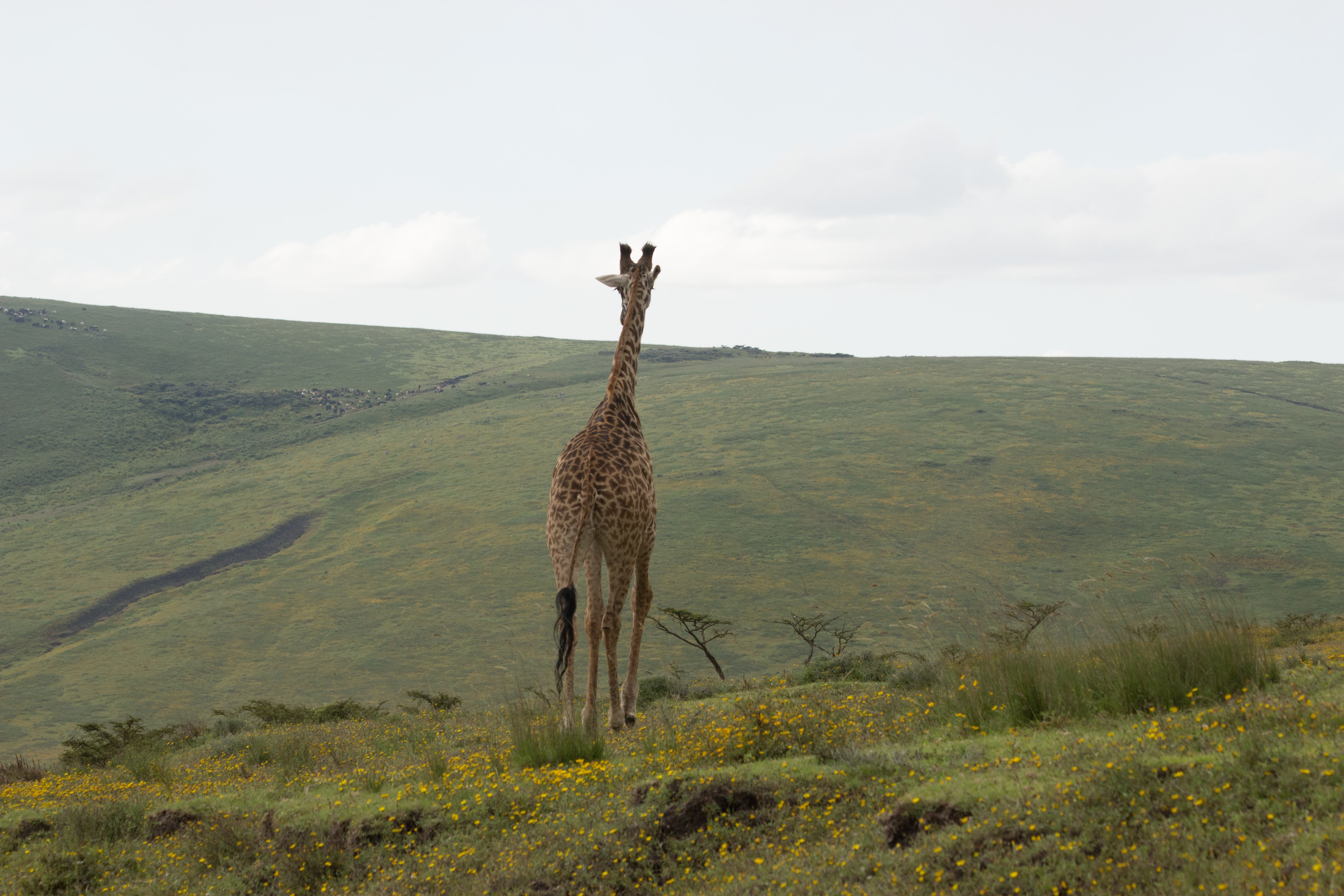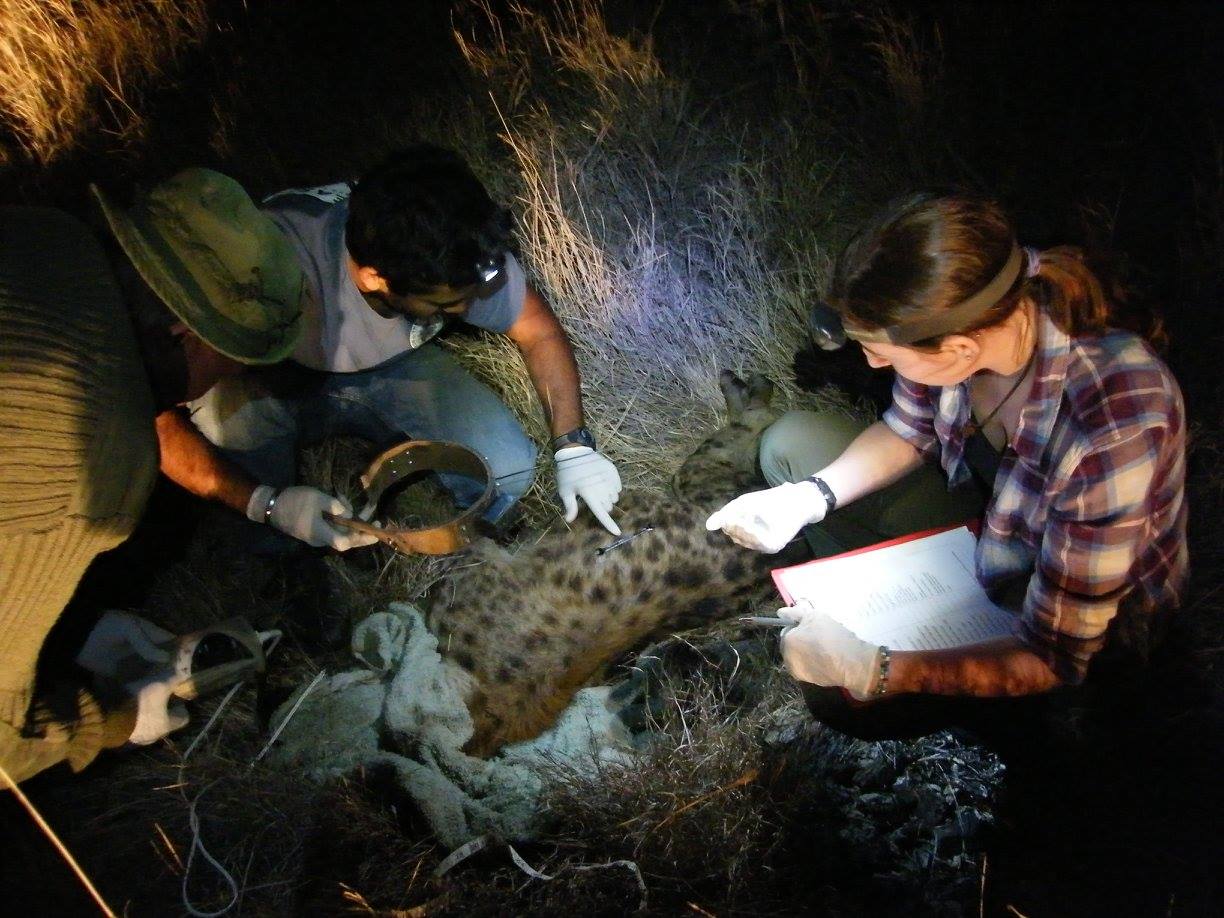Introduction
In the face of climate change, biodiversity loss and habitat degradation in East Africa and the larger African continent, wildlife conservation needs to be prioritized in order to protect our endangered species and restore our fragile ecosystems. To make the kind of impact needed to preserve our planet, urgent measures geared toward mitigating climate change, restoring habitats and creating a better coexistence between humans and wildlife should be considered in policy making and implementation, conservation management decisions, and innovation in our field at all levels.
In this interview with Arjun Dheer, a wildlife scientist, Red List Authority for the IUCN SSC Hyaena Specialist Group, National Geographic Explorer and current PhD student with the Ngorongoro Hyena Project in Tanzania, he emphasizes the importance of wildlife research, to effective conservation. Having worked in several African countries, Arjun gives an interesting perspective of the different conservation work in these regions and shares some of the commonalities and challenges in the field, along with conservation tech needs of the region and highlights of his research work.
Join us as we talk to Arjun about his wildlife research experiences, the unique challenges he has faced and on the needs and future of conservation tech in Africa and beyond!
Wildlife Conservation Experiences in different African countries: An Interview with Arjun Dheer
What area(s) of wildlife research have you focused on?
I’m really interested in the overlap between behavioral ecology and wildlife management, i.e., using basic research to promote conservation outcomes. Much of my work has focused on - but is not limited to - the ecology and conservation of large African carnivores, such as spotted hyenas, lions, and leopards, and their interactions with each other, their prey, and human communities. I am currently doing a PhD focused on the responses of spotted hyenas to anthropogenic activity and human-carnivore conflict in Ngorongoro Conservation Area, Tanzania.

Working as a Wildlife researcher often requires you to travel a lot to carry out scientific research and contribute towards protecting endangered species and fragile ecosystems. Which countries in Africa have you worked in and on what projects? How did you end up working in these countries?
I have worked in Tanzania, Kenya, Botswana, Namibia, and South Africa. In Tanzania, I work with the Ngorongoro Hyena Project, which is based at the Leibniz Institute for Zoo and Wildlife Research. In Kenya, I worked on the Lewa-Borana landscape in collaboration with Marwell Wildlife and the University of Southampton. In Botswana, I was with the Botswana Predator Conservation Trust, and in Namibia, the Brown Hyena Research Project. Finally, in South Africa, I volunteered at a wildlife rescue and sanctuary.
I honestly got very lucky to network with and meet the right people along the way, and of course was very persistent and applied for positions (or even proposed them!) when the opportunity arose.
Many know East Africa as being endowed with very rich biodiversity. How best can you describe the biodiversity and landscapes in East Africa, especially those you have been to and worked in?
In my opinion, East Africa has the most beautiful landscapes on Earth - it is of course endowed with high densities of large mammals, but it also has a great diversity of birds, reptiles, insects, plants, and other less conspicuous taxa. I’ve always found the Serengeti-Mara-Ngorongoro ecosystem to be especially stunning due to its vast expanses of open grassland and scenic topography. But other parts of East Africa are also very impressive and important biodiversity hotspots that are crucial to conserve.

There are many crucial conservation issues in East Africa such as human-wildlife conflict, poaching, forest degradation, habitat degradation, and climate change impacts, which directly or indirectly affect our wildlife. What can you say are the most persistent challenges? Especially of those you have experienced or seen first-hand?
Habitat loss and fragmentation is definitely a major one, as it has disrupted migration routes and isolates populations of threatened species. Climate change is also a big one; droughts in the region have been especially severe in recent years and are challenges for both wildlife and human communities to cope with. People in rural parts of East Africa have among the smallest carbon footprints on Earth, yet are among the most affected by climate change. And certainly direct conflict is another one - the species I have studied are all implicated in livestock depredation, which is very challenging.
What Conservation tech tools and systems have you deployed in your work/projects?
I’ve made use of cameras, camera traps, GPS devices, GPS and radio collars, receivers, palm pilots, call-up speakers, microphones, next-generation sequencing, and many others. There’s a whole array of tools needed for wildlife research, and the ones used vary depending on the questions being asked and the focus of the research being done.
For example, in Kenya, I made extensive use of GPS collars that were deployed on spotted hyenas and lions to understand their movements in relation to each other and the surrounding pastoral communities. 
In Tanzania, I am able to follow the Ngorongoro Crater hyenas directly, so I don't need collars, but I do of course make extensive use of my camera to take ID shots and my GPS device to mark the locations of individuals. In Namibia, I used camera traps to monitor brown hyena dens and latrines to gather data on demography.
Conservation Technology is a growing field in Africa. From your interactions and experiences, how best would you describe the needs, gaps and opportunities that are present?
I think a very important thing for foreign scientists (like myself) to do is to invest a lot in technical training of scientists and researchers from local communities, especially when it comes to useful tools such as R and GIS software. Same goes for the usage of field techniques such as camera trapping. It is only through respectful and helpful training and investment of local scientists and conservationists - especially from the younger generation - that we will ensure a future for wildlife while meeting the needs of human communities in our study areas.

Another issue is the “greenness” of conservation tech. At the moment, field biologists like myself tend to use e.g. vehicles that are powered by fossil fuels and may use single-use plastics to collect samples from study animals or when doing lab work. I’d be really happy to use an electric field vehicle and to see more environmentally-friendly conservation technologies out there. Ultimately, our goal is to conserve wildlife and help the planet. Technological advancements have made that easier, but I think we can take it a step further by ensuring those technologies are environmentally friendly to begin with.
What challenges or project failures have you faced in the field and your research,and how did you overcome them?
One ubiquitous issue is of course car breakdowns, getting stuck in the mud, and dealing with flat tires. It happens to all of us who are field-based. The first thing is to have a good sense of humor and remain adaptable and flexible when such things come up. The second, practically speaking, is to become an expert mechanic! Or at least learn the fundamentals so you can get out of tough situations when they arise.

On top of that, there may be other equipment failures such as camera traps or even GPS collars breaking. Again, one needs to just recognize that these things come up while avoiding such situations as much as possible. Not everything is in your control, so just control what you can and if things get messy, stay calm and keep going.
We’ve recently had many of our community members ask about career paths in conservation tech. What advice would you give to those who are early in their careers or looking to explore this path?
That’s a great question, and unfortunately I cannot give a solid answer because things tend to vary so much on a case-by-case basis, e.g. depending on the individual’s experience, skills, and connections. In general, though, I’d advise people not to just limit themselves to academic conservation - many of us tend to go down the Master’s and PhD path, but there are other ways to work in conservation and conservation tech such as the NGO or government agency route. Or you can always pivot out of academia if you’re seeking a more applied career after your degrees.
I also recommend learning as much as possible about coding and programming - things are getting more and more quantitative, so it helps to have aptitude there.
Last but not least, NETWORK! Like it or not, it helps a ton and opens many doors along the way. I have found the vast majority of more experienced researchers in my field to be supportive, friendly, and helpful, and have no regrets about the fact that I was repeatedly emailing them even in high school!
What are your next steps in research and work?
My top priority at the moment is to finish my PhD. After that, I am very eager to move back to East Africa and settle there permanently - I think that goes a very long way in terms of staying on the pulse of things biologically and when it comes to local engagement. My goal is to work right from the field, collect data, and focus a lot on disseminating the results and techniques of my research to local authorities, colleagues, and communities. To that end, I’ve also been taking advanced-intermediate Kiswahili lessons to make sure I’m at least approaching fluency upon my return!
What does the future of wildlife conservation and conservation technology in Africa look like to you?
In general, I try not to think too much about the future. But I will say that there are a lot of encouraging developments. I think it’s fantastic to see how many local scientists and conservationists are leading projects in their countries. I also think it’s good to see how much technological advancements have made wildlife monitoring research so much simpler and the data more accurate. Rather than driving around for hours looking for a lion, a GPS collar can tell me where the individual is in real time. Absolutely mind-blowing and it helps a lot with e.g. warning communities about potential attacks on livestock. That said, there are of course concerns: for one, habitat loss and fragmentation, as mentioned above, poses difficulties. I also think the trend of fieldwork being replaced by modeling and molecular techniques in wildlife research is a bit unfortunate - in my opinion, fieldwork and direct observations are irreplaceable. Ultimately, a blend of technology and good old fashioned direct observations is the sweet spot. Hopefully, our conservation tech community can continue to integrate them.
------------------------------
Thanks to Arjun for speaking with us about his conservation work in East Africa and beyond. To learn more about work in this region, be sure to join our East Africa community here on WILDLABS.
About Arjun
Arjun Dheer is a wildlife scientist and PhD student with the Ngorongoro Hyena Project (based at the Leibniz Institute for Zoo and Wildlife Research) investigating the responses of spotted hyenas to anthropogenic change and human-carnivore conflict in Ngorongoro Conservation Area, Tanzania. He is the Red List Authority for the IUCN SSC Hyaena Specialist Group and is also a National Geographic Explorer. He is most interested in the application of behavioral and evolutionary ecology to wildlife management and conservation.
Apart from scientific research, he is also passionate about science communication. He has been involved with various media releases, including magazine articles, podcasts, and TV series.
You can explore and read more about Arjun’s work here: Website, Google Scholar and ResearchGate.





Add the first post in this thread.